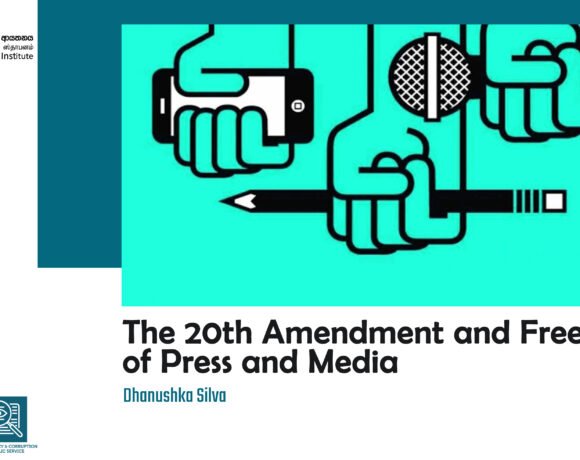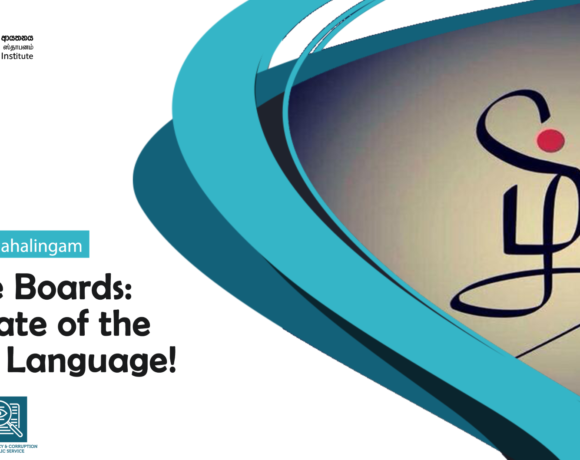
A Political Connection Is Not a Job Qualification
Thimira S. Jayathunga
Every social group must actively contribute in order that a state can exist. For instance, the contribution of the labor force is fundamental.
“All people who work for a company or a country are called workers.” (Oxford Dictionary)
The labor force of a country can be traditionally broken two into two core areas: public and private.But outside these organizational structures we see a significant number of people engage in areas like self-employment and in the development of new products that do not apply to these two systems.
The general practice is to recruit required personnel for both these systems according to the needs of the organization and the qualifications of the people being hired. The recruitment methodology in Sri Lanka often involves a participant going through interviews for the private sector and mostly through written and practical examinations for the public sector. We can also observe that many are interested in securing a job in the public sector even though the salary scale is relatively lower than the public sector. Job security, pensions and social benefits are often the main reasons for this.
The state machinery operates based on tax revenue collected from the public through the provision of services to the public through other sources of income.Public servants are those who are recruited for the labor required to maintain these public services. The total cost, including their salaries, is eventually added to the total state cost. This is an expense incurred by public taxes.
In a democratic governance structure, the fair and equitable way to select those with the right qualifications is through a common system for the service in question.But the reality is that it doesn’t work that way here. A problematic social issue has occurred due to these jobs being given to people based on their political connections. It creates social imbalances and unrest and at the same time creates crises in the state system. This crisis and the problems of the state machinery have created social inequality due to the selection of people who do not have the proper education or professional qualifications to do the job, merely being selected based on their political connections.
In selecting staff, authorized officers and sub-officers in the public service hierarchy in this country, it is no secret that even having a low level political connection has become a sufficient and powerful factor in the appointment of junior staff members. These are not isolated incidents either. This is a crisis that has spread like wildfire, ranging from launching an election campaign to campaigning for graduate jobs. This essentially means that election campaigns in this country are designed in such a way that victory is determined by one’s ability to spend money and provide aid, jobs, etc.
Young people are easily recruited for all the missions within an election campaign on the promise of getting government jobs. If the candidate wins, this people’s representative will go on distribute all the vacancies that need to be filled to the people under him who helped secure his win and they don’t have to undergo any examination process.
When those who don’t meet the required minimum qualifications are admitted to government jobsthat come with privileges like pensions, it is only natural that a sense of dissatisfaction, hatred and anger arises among those with higher educational and professional qualifications more suited to do the work.These feelings among the educated and experienced can inevitably lead to protests and demonstrations.
Some argue that being given free education and higher education at the expense of the government doesn’t necessarily imply that they are also entitled to employment by the state or that the government must also provide them with these jobs. This is true. A degree is an educational qualification only. But the recruitment of people with Advanced Level, Ordinary Level or lower qualifications into public service on the basis of political affiliation must first be rejected if we are to accept this.
The country’s public service has been accused of being a slow, inefficient mechanism for decades. For instance, incidents of hospital workers treating patients in a way that is below the dignity of a human being are very common.Although it is a serious offense to drink alcohol while on duty or to work under the influence of alcohol, seeing hospital and railway workers drunk on duty is not an uncommon sight in our country.It is inevitable that there will be no proper understanding of the system among state employees when the appointment procedure are not proper ones. What’s more, no action is taken in these cases or it is purposely delayed because the workers in question were employed on the basis of their strong political affiliations.This is why providing employment on the basis of political connections can be extremely detrimental to the well-being of our public service.
As mentioned already, the purpose of the state machinery is to provide and maintain public services.But this is only at the basic level. In reality is about more than just about providing these services, it is about meeting the basic public needs of the state in a pro-people, transparent manner.Activities within the state machinery solely for the purpose of accomplishing one’s personal purpose should be completely ruled out.The first step here is to formulate a proper recruitment process and ensure these procedures are implemented properly.Political influences and inclinations within a democratic structureshould ideally pave the way for a just society within a transparent state mechanism.








